Covid-19: difficulty concentrating and poor memory can last for months after infection; understand
Covid may leave sequelae such as memory problems
"Covid-19 is, without a doubt, the most worrying disease of the century in terms of the impact and impairment of neuropsychological functions", says neuropsychologist Lívia Valentin, professor and researcher at the University of São Paulo (USP).
She led a study on the topic at the Instituto do Coração (Incor), which identified short-term memory problems in 63% of patients with covid-19 and attention difficulties in 72% of them.
This research adds to more than 200 other studies around the world that deal with the direct or indirect neurological impact of covid-19, the possible paths that the virus travels in the human body until it reaches the brain and the symptoms that can affect people through months after infection.
Among them, headache, loss of smell, dizziness, memory problems, difficulty in attention, muscle pain, anxiety and depression.
This question concerns bank employee Evelize Vasconcelos, 40, who was admitted to an intensive care unit (ICU) in Salvador after contracting coronavirus and has "a feeling of always swinging" since she was released. "It's like I'm at sea."
His report to BBC News Brasil is paused for two reasons: his breathing lungs are still short of breath and his words often disappear as his reasoning comes and goes. She doesn't know how long it will take to regain her former agility, as she is now barely able to do simple math math.
Tests have yet to explain what is happening, and the exact way in which the coronavirus affected her neurological functions has been linked to one of the four major lines of research in this area since the beginning of the pandemic, when it became clear that covid-19 it was not a simple respiratory disease.
Evelize Vasconcelos says she feels like she is at sea
After all, how does the virus invade the neurological system, how is this attack linked to symptoms, what are the possible treatments and how many people are affected temporarily or permanently?
Generally speaking, these symptoms are linked to three important parts of the human body:
- Central nervous system, responsible for receiving information from the senses and distributing actions: headaches, dizziness, confusion, acute cerebrovascular disease, ataxia (which affects coordination, speech and balance) and seizures;
- Peripheral nervous system, responsible for connecting the central nervous system to other parts of the body: impaired smell and taste, problems with vision, hearing and touch);
- Musculoskeletal system, responsible for the stability and movement of the skeleton: pain (myalgia) and muscle injuries.
For most patients, brain damage becomes a sequel to the so-called covid-19 long, a health condition in which the impact of the disease persists for weeks or months.
"The etiology (origins and causes) of neuropsychiatric symptoms in covid-19 patients is complex and multifactorial. It may be linked to the direct effect of the infection, to cerebrovascular diseases (including hypercoagulation), to a physiological impairment (hypoxia), to side effects of drugs and the social aspects of having a potentially fatal disease ", say researchers from universities in the USA, Mexico and Sweden who analyzed dozens of studies , involving 48 thousand patients.
The symptoms most reported by patients are headache (44%), difficulty in attention (27%), anosmia (loss of smell, in 21%), in addition to two other less common, but more disabling, such as neuropathies and mental confusion ("brain fog", in English, or "cerebral fog", in literal translation).
There is still no precise data on the profile of the most affected patients, but in general studies indicate that the majority is made up of people over 40 years old.
Magnetic resonance imaging shows changes in the structure of the cerebral cortex; in yellow, the reduction in cortical thickness; in blue, increasing the thickness
How does the coronavirus invade the central nervous system?
Researchers from the Chinese city of Wuhan, considered the first epicenter of the pandemic, analyzed 214 infected patients between January and February 2020. Of the total, 37% had neurological impacts of the disease and 59% of them were women.
This study shed light on the fact that patients with severe infections of the new coronavirus had frequent neurological injuries. It was not known at that time whether these manifestations occurred by direct or indirect action of the Sars-Cov-2 virus, and this is still unclear to this day.
Two months later, another group of researchers from China suggested two hypotheses for the invasion of the nervous system by the virus: through blood vessels after passing through the lungs or through the nose, via the olfactory mucosa, which is connected to the central nervous system.
Daniel Martins-de-Souza, a professor in the biochemistry department at the University of Campinas (Unicamp), explains in an interview with BBC News Brasil that more than a year later the question of how coronavirus reaches the brain "has been partially answered".
Studies have shown that the fact that the virus does not reach the brain of all infected people indicates that the most likely path is the one that passes through the olfactory nerve, which conducts electrical impulses associated with the sense of smell.
According to a study led by researchers from universities in Berlin (Germany), samples from 33 people who died of severe covid indicate that the virus can enter the olfactory mucosa, cross the neural-mucosa interface and enter the nervous system. The olfactory mucosa lines some regions of the nasal cavities and has in its composition sensory cells that derive from the central neurological system.
In the study, published in November 2020, they say they found intact coronavirus particles in this region. According to the researchers, the invasion of nerve cells in the olfactory mucosa by the virus could explain more direct neurological symptoms in patients with covid-19, such as loss of smell and taste. In addition, the presence of the coronavirus in areas of the brain with vital functions can have another more serious impact: aggravating the difficulty in breathing.
Immunoflorescence shows Sars-Cov-2 (yellow) affecting a neuron (pink)
What does the coronavirus do in the brain?
Upon reaching the brain, the virus targets two pillars of the nervous system: neurons and astrocytes. In short, the former are responsible for transmitting nerve impulses and the latter for supplying them with energy.
It is unclear what brings coronavirus to the brain, but researchers have advanced in understanding the possible mechanisms of what happens when it is there.
Martins-de-Souza, from Unicamp, explains that the human body has a blood-brain barrier, which is a kind of guardian that allows elements present in the blood to reach the brain, but prevents the passage of pathogens such as viruses and bacteria.
Except that some invaders manage to overcome this barrier. One of the entry points would be the ACE2 protein (or ECA2, in Portuguese), which works as a kind of "lock" for human cells opened by the "key" of the coronavirus (to that spike protein, those "spines" present around the viruses that form a "crown" and name the coronavirus).
But, in a study produced in October 2020, Martins-de-Souza and 79 other colleagues analyzed brain tissues from patients who died of covid-19 and cells cultured in the laboratory and identified the presence of the coronavirus in astrocytes, which do not have to ACE2.
So, where did Sars-Cov-2 come in? Apparently, the gateway here is neuropilin (NRP1), a numerous protein also in blood vessels and neurons.
"NRP1 is expressed even in olfactory neurons, giving Sars-CoV-2 a direct way to enter these cells and interrupt the sense of smell", explain six researchers from hospitals in Florida (USA) in another study on this point. According to them, this invasion may increase the ability of the coronavirus to spread and infect.
"When the virus is inside astrocytes, it changes the way astrocytes produce energy. Cells live to produce energy, so they can perform their functions. So the virus, somehow, changes the way the astrocyte it produces energy, because it also needs energy to replicate ", explains Martins-de-Souza.
This can lead to the death of the neuron due to the "lack of energy" it received from astrocytes or because of the toxic environment that arises in the brain when astrocytes start to produce a substance that is harmful to neurons.
The described scenario may be responsible, according to the scientists, for the neuropathological changes and for the neuropsychiatric symptoms observed in patients with covid-19.
In March, Brazil has been recording consecutive records of daily deaths
What are the main neurological symptoms?
There are several neurological symptoms that have been associated with covid-19 since the beginning of the pandemic, such as headache, memory loss, mental confusion and difficulty concentrating. In addition, there are other more rare conditions, such as stroke, impaired consciousness, psychosis, delirium, seizures and encephalopathy.
Some of these symptoms may be signs that the immune system is fighting the disease, but the vast majority are not.
"I don't think it was anyone's business to imagine that people who were not hospitalized, who would be 'mild' conditions, could have a range of disabling neurological disorders, as we observed not only here but worldwide," explained Clarissa Lin Yasuda, doctor and professor in the neurology department at Unicamp, in a recent interview with BBC News Brasil.
She is one of the co-authors of the study in which Martins-de-Souza participated, which identified signs of brain damage in 25% of people who died of covid-19.
"It is a lot that we do not know, a lot to be studied: how much of these neurological conditions has an inflammatory component, how much is autoimmune, how much is a direct attack of the virus. Nobody has an answer, but I think it is an combination of it all. "
According to a group of researchers from universities in the United States, Mexico and Sweden that analyzed dozens of studies on the subject, adult patients who had covid-19 are twice as likely to develop psychiatric disorders, such as anxiety, insomnia and dementia. This may also be linked to the negative impact of the disease on the quality of sleep for patients.
But children and adolescents are also at serious risk. Forty-eight U.S. doctors and researchers produced a study, published earlier this month in the journal Jama Neurology, which points out that 22% of patients under the age of 21 had neurological symptoms and 12% with potentially fatal neurological disorders, such as severe encephalopathy, stroke (stroke), infection of the central nervous system and Guillain-Barré syndrome (a muscle weakness caused by the immune system that can be fatal).
Memory impact
The mechanisms of the direct association between covid-19 and short- and long-term memory problems are still unclear. But there are some clues under study.
Natalie Tronson, a professor at the University of Michigan (USA) and a specialist in memory formation, says that lasting changes in the brain after serious health problems, such as infarction and covid-19, are associated with an increased risk of cognitive decline with the advancement of age and also diseases like Parkinson's.
These transformations in the brain can affect memory both by damaging the connection between neurons and by changes in neuronal functioning, as previously stated in relation to the problems of "energy transmission" from astrocytes to neurons.
Another problematic point involves microglia, which are a type of immune cell in the brain.
"During disease and inflammation, specialized immune cells in the brain become active, triggering an enormous amount of inflammatory signals and modifying how they communicate with neurons. For one type of cell, the microglia, that means changing its shape, abandoning arms thin and becoming mobile, swollen cells that envelop possible pathogens and cellular debris in their path. In doing so, they also destroy and devour neuronal connections that are very important for memory storage. "
Another structural change in the brain caught the attention of scientists. Martins-de-Souza, from Unicamp, explains that neuronal death caused by astrocytes can lead to a change in the thickness of the cerebral cortex, the region responsible for speech, memory, language comprehension, among other tasks.
The study in which he participated points out that this structural change that occurred in the cortex during covid-19 may have an impact on memory. "The results indicate that a thinner cortex is associated with poorer performance in verbal memory tasks. In general, our findings indicate significant changes in the cortical structure associated with neuropsychiatric symptoms in patients with mild respiratory symptoms or even without respiratory symptoms," they state. The researchers.
This is the case of student Geovanna Bessa, 18, resident of Paraíso do Tocantins (TO), who presented mild symptoms of covid-19 in January 2021, but until today she has not been able to get rid of the great and constant loss of memory, of the feeling of being aerial. and the difficulty of concentrating.
She even forgets what she is talking about in the middle of a conversation. "Memory loss is something that seems harmless, but it makes all the difference; sometimes I forget if I locked the door or turned off the fire, which is very dangerous," he tells BBC News Brasil.
Pandemic creates need to discuss rehabilitation of recoveries
Duration of symptoms and possible treatments
"We still do not know if there is a possibility of reversing the impaired cognitive condition. Just as some people have not yet returned with their taste and smell, others are still showing significant flaws in memory, executive function and language even after they have recovered from covid- 19 for 10 months ", says Livia Valentin, from USP, to BBC News Brasil.
According to researchers at the University Hospital in Oslo (Norway), in a study with 13,000 participants , 12% of those infected with coronavirus had memory problems eight months after contracting the virus. And these patients continue to be monitored.
Studies also show that the appearance of these symptoms varies greatly from one patient to another. Researchers at Northwest Medicine, a US health care provider, followed 509 inpatients with covid-19. Of the total, 42% had neurological symptoms at the beginning of the infection, 63% during the hospitalization period and 82% over the entire period. The three main symptoms were muscle pain, headache and encephalopathy (a term used for diffuse brain diseases that alter its structure or function).
No protocol
So far, there is no established treatment protocol for neurological symptoms linked to covid-19, a new, systemic and multifactorial disease.
In addition to vaccines, there are very few drugs that can prevent serious cases and deaths from covid-19. But they are only adopted by doctors on a case-by-case basis, and not as large-scale prevention or treatment for the population. And self-medication can also aggravate the disease.
This is the case of dexamethasone, a corticosteroid that fights a disproportionate reaction of the immune system of some patients (cytokine storm) against covid that can end up having the opposite effect and leads to death. This potentially fatal unrestrained immune reaction can affect several organs, one of which is the brain.
This medication can also have positive effects against neurological symptoms. Experts at the Memorial Sloan Kettering Cancer Center , in New York (USA), thoroughly analyzed 18 cancer patients who were infected with covid-19 and who reinforced the hypothesis of using anti-inflammatory drugs to deal with the so-called brain fog.
But what should a patient do if he develops other neurological symptoms, such as mental confusion, memory loss, dizziness and headache?
According to Valentin, from USP, "the treatments are very varied, from medicated, psychotherapeutic, neuropsychological rehabilitation, physiotherapy". She argues that the post-covid-19 period "requires a public health concern" and, therefore, should involve several professionals in multidisciplinary teams both in the problem and in the treatment.
"Otherwise, we will have an extremely impaired population in the very near future in the labor, social, academic, family and personal spheres of the people affected. As we speak of thousands, perhaps millions of people affected, I think that the need for an urgent and urgent job already it's late. "
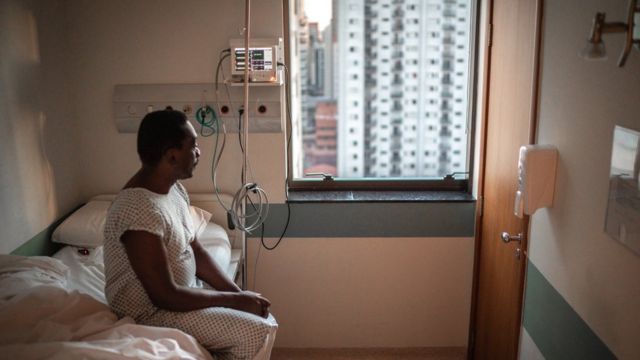

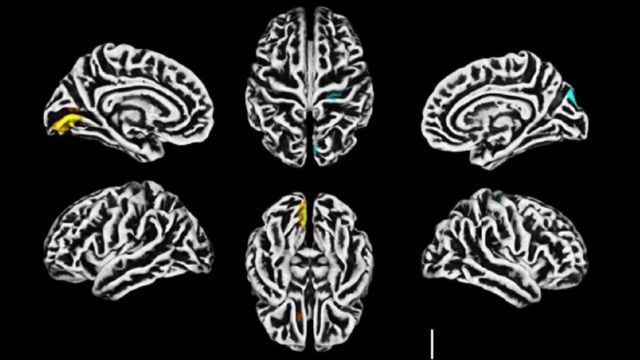
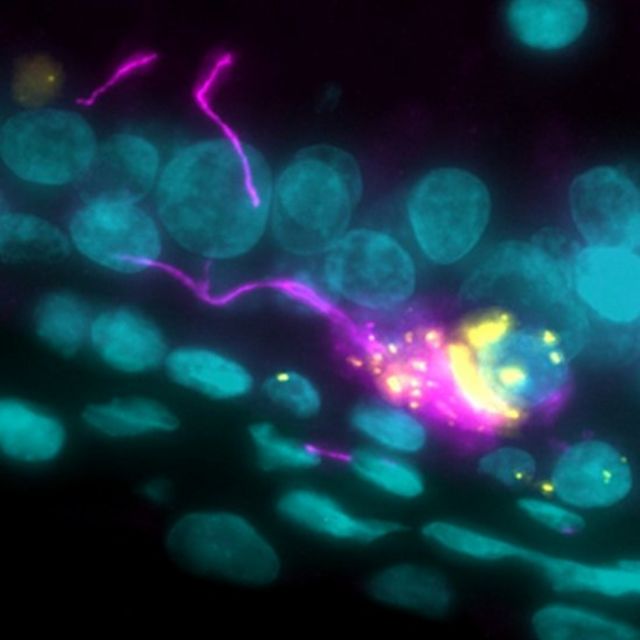
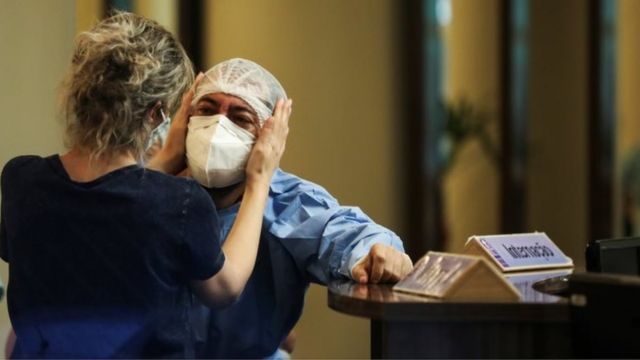
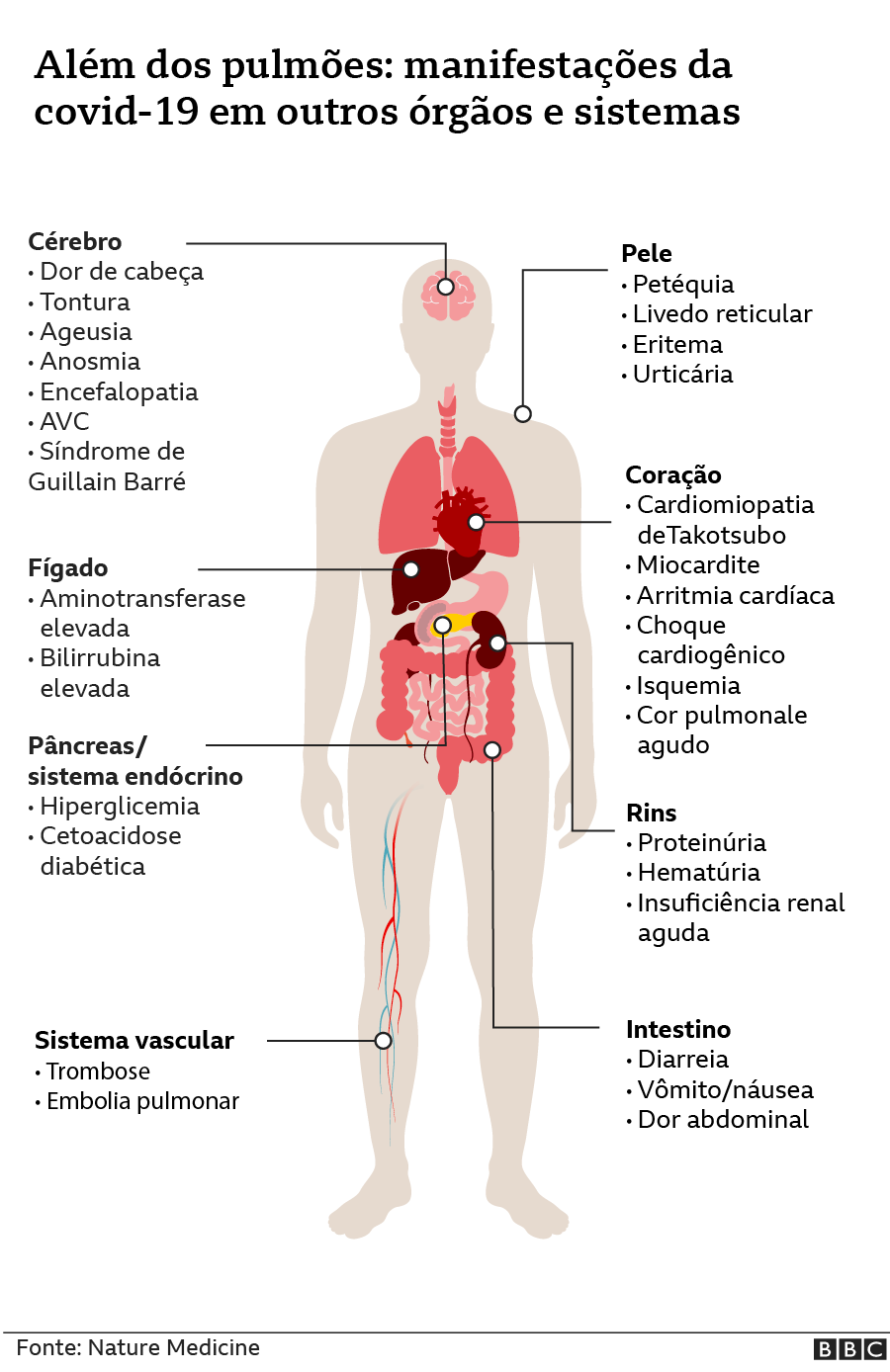
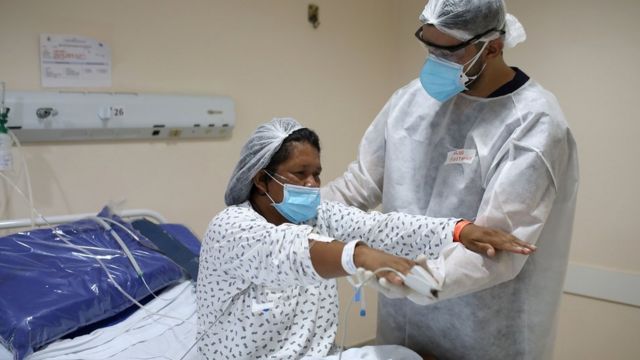

No comments:
Post a Comment